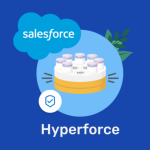Introduction
In the fast-paced world of business technology, companies are often faced with a critical decision: should they opt for a platform like Salesforce with its app development capabilities, or venture into custom development? Both Salesforce app development and custom app development have their unique advantages and challenges. This article delves into the intricacies of both, helping businesses make an informed choice.
Understanding Salesforce App Development
What is Salesforce App Development?
Salesforce app development involves creating applications within the Salesforce platform. This can include leveraging Salesforce custom app development and Salesforce app customization to tailor solutions specifically to business needs.
The Role of Salesforce Development Partners
Salesforce development partners play a crucial role in this ecosystem. They are experts in Salesforce technology and provide businesses with the know-how to develop, customise, and optimise Salesforce applications effectively.
Salesforce Marketing Automation
A significant aspect of Salesforce app development is its marketing automation capabilities. Businesses can automate repetitive tasks in marketing, sales, and service processes, improving efficiency and effectiveness.
Exploring Custom Development
The Essence of Custom App Development
Custom development is the process of building a software application from the ground up, tailored to the specific requirements of a business. This approach offers a high degree of customization and flexibility.
Advantages of Going Custom
The primary advantage of custom development is the ability to create a solution that perfectly aligns with your business processes and goals. It offers complete control over the functionality, appearance, and integration capabilities of the application.
Salesforce vs Custom Development: A Comparison
Cost and Time Efficiency
Salesforce app development is often faster and more cost-effective compared to custom development. Salesforce provides a ready-made platform with numerous built-in features, reducing development time and cost.
Customization and Flexibility
While Salesforce offers significant customization options, custom development wins in terms of flexibility. Custom-built applications can be tailored to any specific need, without the constraints of a pre-existing platform.
Scalability and Integration
Salesforce apps are highly scalable and integrate seamlessly with other Salesforce solutions. Custom apps also offer scalability, but the salesforce integration with other systems can be more complex and may require additional development.
Maintenance and Support
With Salesforce, maintenance and support are often more straightforward, as Salesforce development partners provide continuous support. Custom apps require a dedicated team for ongoing maintenance, which can be resource-intensive.
Conclusion
Deciding between Salesforce app development and custom development depends on the specific needs, budget, and resources of a business. Salesforce is an excellent choice for businesses seeking a cost-effective, scalable, and time-efficient solution with robust marketing automation capabilities. Custom development, on the other hand, is ideal for businesses needing highly specialised solutions without any platform constraints.
How Tech Talent Consulting can help you with Salesforce App Development Services?
Tech Talent Consulting offers expert Salesforce App Development Services, leveraging deep platform knowledge to create customised solutions that enhance business efficiency. Our skilled team specialises in developing tailored apps, ensuring seamless integration and maximising CRM potential, all while providing ongoing support and guidance for optimal performance and user adoption.
FAQs:
Why is Salesforce better than others?
Salesforce excels due to its comprehensive CRM capabilities, robust marketing automation, extensive ecosystem of apps, and strong scalability, making it ideal for businesses of all sizes.
How does the Salesforce platform help in custom app development?
The Salesforce platform offers tools like Salesforce App Builder and Apex code, enabling easy customization and development of apps tailored to specific business needs and processes.
Is Salesforce highly customizable?
Yes, Salesforce is highly customizable, offering a range of tools and features that allow businesses to tailor the platform to their specific needs, from user interfaces to complex workflows.
Which role is best in Salesforce?
The “best” role in Salesforce depends on individual skills and interests. Roles like Salesforce Administrator, Developer, and Architect are highly sought after for their respective focuses on system management, custom coding, and system architecture.
Can Salesforce apps be completely customised?
Yes, Salesforce apps can be significantly customised to meet specific business needs, though within the framework of the Salesforce platform.
Is custom development more expensive than Salesforce?
Generally, custom development can be more expensive and time-consuming than using Salesforce, due to the need to build everything from scratch.
How does Salesforce marketing automation compare to custom solutions?
Salesforce marketing automation is robust and integrates seamlessly with other Salesforce features. Custom solutions can offer more tailored automation but may require more development work for integration.
Are Salesforce apps scalable?
Yes, Salesforce apps are highly scalable, allowing businesses to expand their functionality as they grow.
How does CRM consulting improve sales performance?
CRM consulting improves sales performance by optimising lead management, providing customer insights for personalization, and streamlining sales processes.
What are the benefits of Salesforce for recruitment agencies?
Salesforce offers customization, integration capabilities, and data-driven recruitment strategies, enhancing the efficiency and effectiveness of recruitment agencies.
What challenges are involved in CRM implementation?
Key challenges include ensuring user adoption and training, as well as maintaining data security and compliance with regulations.









